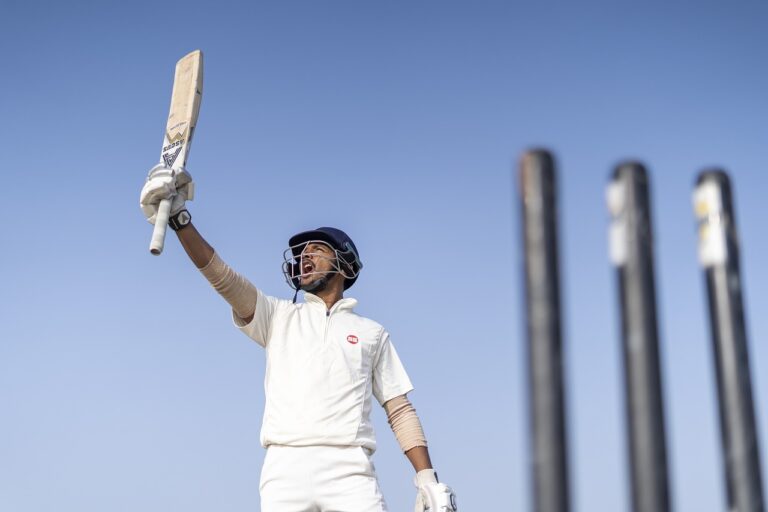Exploring the Role of Sports Ethics in Cricket Player Representation
allpaanel exchange, lotus365, laserbook247 id:Cricket is not just a sport; it’s a way of life for millions of fans around the world. With its rich history and culture, cricket has produced some of the biggest superstars in the sporting world. But along with fame and fortune comes great responsibility, especially when it comes to representing the game ethically.
In this article, we will explore the role of sports ethics in cricket player representation. We will delve into the various aspects of ethical conduct expected from cricket players and how it impacts their portrayal in the public eye. Let’s take a closer look at the intersection of sportsmanship, integrity, and fair play in the world of cricket.
The Importance of Sports Ethics in Cricket
Cricket is a sport that prides itself on its traditions and values. From the gentleman’s game to the spirit of fair play, cricket has always held ethical standards in high regard. Players are not just seen as athletes; they are also viewed as ambassadors of the sport. Their conduct on and off the field reflects not only on themselves but also on the game they represent.
Sports ethics in cricket encompass a wide range of principles, including honesty, integrity, respect, and sportsmanship. Players are expected to uphold these values both during matches and in their interactions with fans, opponents, and officials. Any breach of these ethical standards can have serious consequences, both professionally and personally.
The Role of Sports Ethics in Player Representation
When it comes to player representation, sports ethics play a crucial role in shaping public perceptions. Cricket players are often looked up to as role models, especially by young fans who idolize them. Their behavior and actions can have a lasting impact on the impression fans have of the sport and its players.
Ethical conduct on the field is not limited to following the rules of the game. It also extends to how players handle contentious situations, interact with their teammates and opponents, and accept victory or defeat graciously. A player who embodies the principles of sports ethics is more likely to earn the respect and admiration of both fans and fellow players.
In the age of social media and constant scrutiny, cricket players must be mindful of their actions at all times. A single misstep can tarnish their reputation and the image of the sport they represent. By upholding ethical standards and demonstrating good sportsmanship, players can enhance their public image and inspire others to follow suit.
Challenges and Controversies in Cricket Ethics
While cricket has a long history of upholding ethical standards, it is not immune to controversies and challenges. From match-fixing scandals to on-field altercations, the sport has seen its fair share of ethical breaches over the years. These incidents not only tarnish the reputation of the players involved but also cast a shadow over the integrity of the game itself.
One of the biggest challenges in cricket ethics is the issue of corruption. Match-fixing, spot-fixing, and betting have plagued the sport for decades, leading to bans and suspensions for players and officials. The specter of corruption undermines the credibility of cricket and erodes the trust of fans in the game. It is essential for players to be vigilant and report any suspicious behavior to the authorities to uphold the integrity of cricket.
Another area of concern in cricket ethics is sledging or verbal abuse on the field. While competitive banter is a part of the game, personal attacks and disrespectful behavior have no place in cricket. Players must remember that they are not just representing themselves but also the spirit of the game. By treating their opponents with respect and dignity, players can set a positive example for others to follow.
Fostering a Culture of Sports Ethics in Cricket
To promote sports ethics in cricket player representation, it is essential to foster a culture of integrity and fair play within the sport. This starts with education and training at the grassroots level, instilling in young players the values of sportsmanship, respect, and honesty. Coaches, administrators, and officials also play a vital role in upholding ethical standards and holding players accountable for their actions.
Cricket organizations and governing bodies have a responsibility to enforce strict codes of conduct and disciplinary measures to deter unethical behavior. By setting clear guidelines and consequences for misconduct, players are reminded of the high ethical standards expected of them. Transparency and accountability are crucial in maintaining the integrity of cricket and ensuring that the sport is played fairly and honestly.
FAQs
Q: What is the role of sports ethics in cricket player representation?
A: Sports ethics play a crucial role in shaping public perceptions of cricket players. Ethical conduct on and off the field reflects not only on the players themselves but also on the game they represent.
Q: Why is it important for cricket players to uphold ethical standards?
A: Cricket players are not just athletes; they are also seen as ambassadors of the sport. By upholding ethical standards, players can enhance their public image and inspire others to follow suit.
Q: How can cricket organizations promote sports ethics in the sport?
A: Cricket organizations can promote sports ethics by educating players on the values of sportsmanship, respect, and honesty. Strict codes of conduct and disciplinary measures can also deter unethical behavior and uphold the integrity of the game.
In conclusion, sports ethics play a vital role in cricket player representation. By upholding ethical standards and demonstrating good sportsmanship, players can promote the values of integrity and fair play in the sport. It is essential for cricket players to remember that they are not just playing a game; they are also representing a rich tradition and culture that deserves to be upheld with the highest ethical standards.







